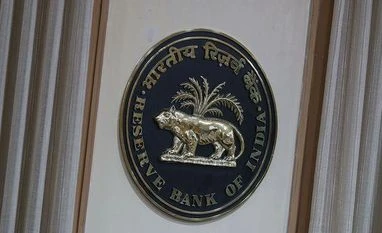The Reserve Bank on Wednesday sought views from the public on fees and charges in payment systems, with an aim to make such transactions affordable as well as economically remunerative for the entities involved.
The payment systems include Immediate Payment Service (IMPS), National Electronic Funds Transfer (NEFT) system, Real Time Gross Settlement (RTGS) system and Unified Payments Interface (UPI). Debit cards, credit cards and Prepaid Payment Instruments (PPIs) are among the other payment instruments.
The focus of RBI's initiatives in the payment systems has been to ease frictions which may arise from systemic, procedural or revenue-related issues, the central bank said while releasing a discussion paper on 'Charges in Payment Systems'.
The Reserve Bank of India (RBI) has sought public views on 40 specific questions with regard to charges and levies in payment systems by October 3.
While there are many intermediaries in the payments transaction chain, consumer complaints are generally about high and non-transparent charges.
RBI stressed that charges for payment services should be reasonable and competitively determined for the users, and also provide optimal revenue stream for the intermediaries.
"To ensure this balance, it was considered useful to carry out a comprehensive review of the various charges levied in the payment systems by highlighting different dimensions and seeking stakeholder feedback," it said.
Charges in a payment system are the costs imposed by the Payment Service Providers (PSPs) on the users (originators or beneficiaries), for facilitating a digital transaction. The charges are recovered from the originators or the beneficiaries depending on the type of payment system.
In a funds transfer payment system, the charges are generally recovered from the originator of the payment instruction. These are usually levied as an add-on to the amount earmarked for remittance.
In the case of a merchant payment system, the charges are generally recovered from the final recipient of money (merchant). This is generally done by deducting the same from the amount receivable by the merchant or a discount to the amount receivable by the merchant.
Entities involved in providing digital payment services incur costs, which are generally recovered from the merchant or the customer or is borne by one or more of the participants.
While there are both advantages and disadvantages of customers bearing these charges, they should be reasonable and should not become a deterrent in the adoption of digital payments, the RBI had said earlier.
To read the full story, Subscribe Now at just Rs 249 a month
Already a subscriber? Log in
Subscribe To BS Premium
₹249
Renews automatically
₹1699₹1999
Opt for auto renewal and save Rs. 300 Renews automatically
₹1999
What you get on BS Premium?
-
Unlock 30+ premium stories daily hand-picked by our editors, across devices on browser and app.
-
Pick your 5 favourite companies, get a daily email with all news updates on them.
Full access to our intuitive epaper - clip, save, share articles from any device; newspaper archives from 2006.
Preferential invites to Business Standard events.
Curated newsletters on markets, personal finance, policy & politics, start-ups, technology, and more.
Need More Information - write to us at assist@bsmail.in
)